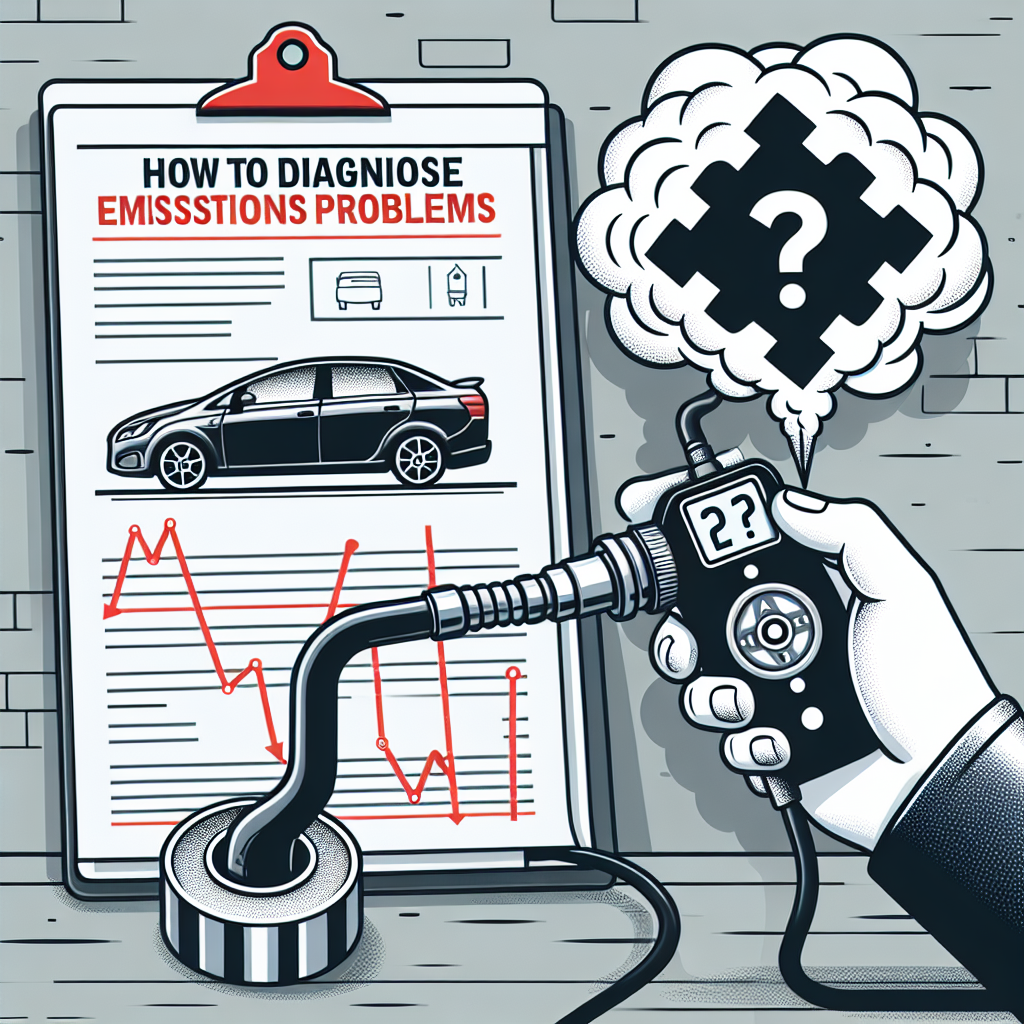How to Spot Emissions Problems Before a Smog Test
Introduction
Smog tests are important for keeping the air clean and making sure cars follow the rules about pollution. In California, making sure your car passes the smog test can help you avoid fines and frustration. Figuring out and fixing emissions issues before the smog test can save you time and money. This post will help you with that.
Understanding How Car Emissions Work
Your car has an emissions system that helps reduce bad chemicals from going out of your car’s tailpipe. Parts of this system include the catalytic converter, exhaust manifold, oxygen sensors, and EGR valves. Regular check-ups and knowing a few basic things about this system can help stop problems during the smog test.
Common Emissions Problems
Strange Exhaust Smoke
Exhaust smoke is a big hint that something might be wrong with your emissions system. Different colors of smoke mean different things:
- Blue Smoke: This might mean oil is burning in the engine, possibly because of leaking piston rings or valve seals.
- White Smoke: This could mean your engine has a coolant leak, such as from a blown head gasket.
- Black Smoke: This often happens when there is too much fuel mixed with air, or because of clogged air filters, causing your car to burn too much fuel.
Check Engine Light (CEL)
If your check engine light is on, that’s a warning about your emissions system. It might mean there are problems with the oxygen sensors, the catalytic converter, or the mass airflow sensor. Using an OBD-II scanner can help you find out what’s wrong by showing you the trouble codes.
Bad Fuel Efficiency
If your car suddenly starts using more fuel, it might have emissions problems like bad oxygen sensors or leaks in the exhaust. These problems can lead to more pollution and might cause your car to fail the smog test.
Finding Emissions Issues
Look for Problems
Looking closely at your car can tell you a lot about how healthy its emissions system is. Check for:
- Leaks: Look for wet spots under your car or on the ground. This could mean leaks in oil or coolant.
- Rust or Damage: Check the exhaust system for rust or breaks as this could impact the system.
Use Diagnostic Tools
An OBD-II scanner is needed for finding emissions problems. When you plug it into your car, it can show trouble codes and help you understand what’s causing the issues. Codes like P0420 and P0171 are common ones to look for.
Listen and Feel
Strange noises like knocking or hissing, along with weird shakes, especially when your car is idling or speeding up, could mean problems. Pay attention to how the car feels when driving; this might show signs like exhaust leaks or bad parts in the emissions system.
How to Prevent Problems
Keep Up with Maintenance
Following your car’s maintenance schedule is super important. This includes oil changes, checking spark plugs, and making sure air filters are clean.
Good Fuel and Additives
Using better-quality fuel helps stop buildup in the fuel system, and sometimes using fuel additives can help clean it out, improving how your emissions system works.
Stay Informed
Knowing about recalls or service fixes for your car can help you spot emissions problems before they become big.
Getting Ready for a Smog Test
Before you head for a smog test, make sure your car is ready:
- Warm it up before the test; a warm engine does a better job.
- Fill your fuel tank adequately to ensure good readings during the test.
- Have paperwork for any repairs, especially those related to the emissions system.
Conclusion
Spotting and fixing problems early can help you pass a smog test. If you have ongoing issues or are unsure about your car’s condition, don’t be afraid to ask a professional for help. Fixing emissions problems can save you time, money, and also help the environment.
Additional Resources
- Learn more about California’s vehicle emission standards.
- Find local San Diego experts for detailed emissions testing.
- Check out vehicle registration and smog services at Tags Clinic.
Please share your experiences or tips in the comments below. And remember, for registration and smog check help in San Diego, Tags Clinic is here to help. Visit or contact us today for more info!
Call to Action
We encourage you to visit Tags Clinic at 3845 University Ave, San Diego, CA or call us at 619-777-9046. For more details, visit our website tagsclinic.com.
